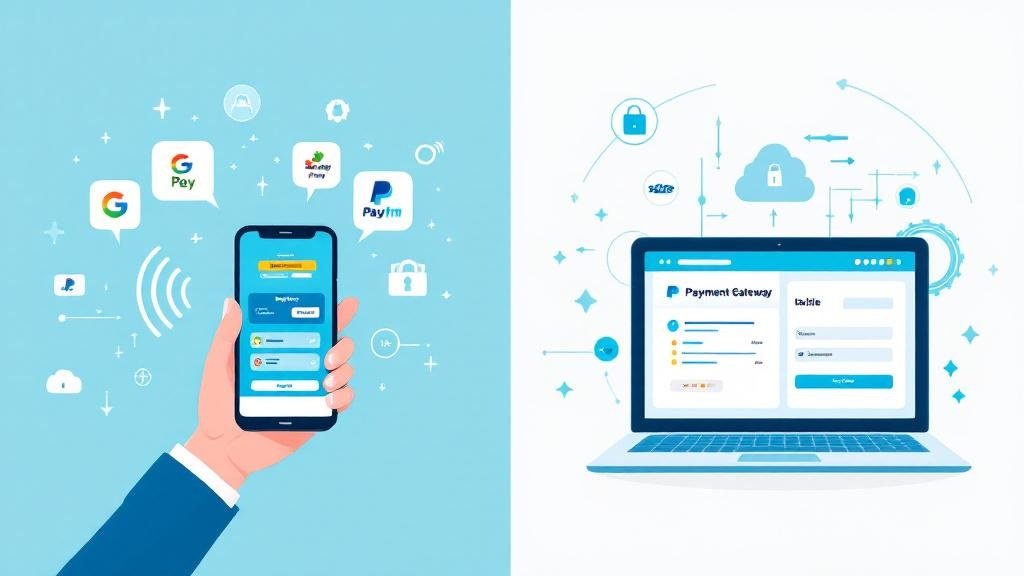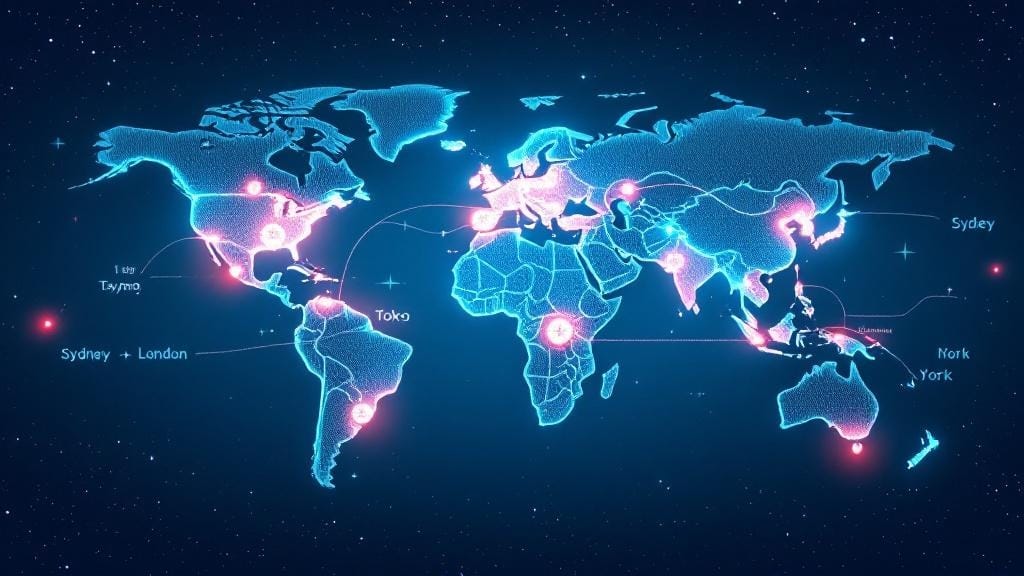In today’s fast-paced digital economy, both digital wallets and payment gateways have become vital tools in online transactions. But they serve very different purposes. If you’ve ever wondered about the difference between the two or which one your business should use, you’re not alone.
This guide provides a clear, easy-to-understand comparison of digital wallet vs payment gateway, using real-world examples, pros and cons, and practical applications—whether you’re a shopper, an online business owner, or a fintech enthusiast.
🚀 What Is a Digital Wallet?
A digital wallet (or e-wallet) is a virtual tool that securely stores payment information like credit/debit cards, UPI IDs, or bank account numbers. Think of it as your physical wallet—but on your phone or computer.
Popular examples:
-
Google Pay
-
Apple Pay
-
Paytm
-
PhonePe
-
Samsung Wallet
✅ Key Features of Digital Wallets
-
Contactless payments via NFC (Near Field Communication)
-
Stored credentials for one-tap payments
-
Mobile wallet access anytime, anywhere
-
Real-time payment processing
-
Two-factor authentication for extra security
Real-life use case: You walk into a grocery store, pick your items, and pay in seconds using your smartphone—no cards or cash needed.
💳 What Is a Payment Gateway?
A payment gateway is a technology used by merchants to accept online payments. It’s the bridge between a customer’s bank and the merchant’s account, securely transferring the payment information.
Popular payment gateways:
-
Razorpay
-
Stripe
-
PayPal
-
CCAvenue
-
Square
✅ Core Functions of Payment Gateways
-
Encrypts sensitive information
-
Authorizes transactions
-
Ensures PCI compliance
-
Works with multiple payment methods
-
Enables ecommerce checkout
Real-life use case: You shop on an ecommerce website, add items to the cart, and checkout using your card. The payment gateway processes the transaction behind the scenes.
🔍 Digital Wallet vs Payment Gateway: Key Differences
Let’s break down the difference between digital wallet and payment gateway with a side-by-side comparison:
| Feature | Digital Wallet | Payment Gateway |
|---|---|---|
| Primary Function | Stores user payment info for quick transactions | Processes transactions between customer and merchant |
| Users | Consumers | Merchants |
| Transaction Medium | Smartphone, web apps | Ecommerce sites, apps |
| Example Use Case | Pay at a store with your phone | Checkout on an online store |
| Security | Encrypted storage, 2FA | End-to-end encryption, PCI DSS |
| Setup Required | User downloads and registers | Merchant integrates into platform |
| Popular For | Personal payments, contactless shopping | Online business transactions |
💼 Use Cases: Digital Wallet vs Payment Gateway
💡 When to Use a Digital Wallet
-
Paying for cab rides (Uber, Ola)
-
Ordering food (Swiggy, Zomato)
-
Splitting bills with friends (Google Pay)
-
In-store NFC payments (Apple Pay)
💡 When to Use a Payment Gateway
-
Running an online store (Shopify, WooCommerce)
-
Selling digital products
-
Accepting subscription payments
-
Managing large-scale fintech services
🧠 How Digital Wallets Work vs Payment Gateways
Both are used in digital transactions, but the flow is quite different.
📲 Digital Wallet Workflow:
-
User opens wallet app
-
Chooses saved card or bank
-
Enters PIN/biometric
-
Transaction completes instantly
🌐 Payment Gateway Workflow:
-
Customer fills in card info on website
-
Payment gateway encrypts data
-
Data sent to acquiring bank
-
Bank seeks approval from issuer
-
Transaction is confirmed/denied
🧾 Pros and Cons of Digital Wallets and Payment Gateways
✅ Pros of Digital Wallets
-
Fast, one-tap payments
-
Great for contactless shopping
-
Stores loyalty cards, coupons
-
Enhanced transaction security
❌ Cons of Digital Wallets
-
Requires mobile device & internet
-
Limited acceptance in rural areas
-
Device theft can pose a risk (unless secured)
✅ Pros of Payment Gateways
-
Accepts global transactions
-
Supports multiple payment methods
-
Highly secure & PCI compliant
-
Customizable for ecommerce checkout
❌ Cons of Payment Gateways
-
Setup and maintenance costs
-
Delays in fund settlement
-
Requires integration with shopping platform
🧩 Types of Digital Wallets vs Payment Gateways
🏦 Types of Digital Wallets
-
Closed Wallets: Used within specific apps (e.g., Amazon Pay)
-
Semi-Closed Wallets: Used at select merchants (e.g., PhonePe)
-
Open Wallets: Linked to banks for withdrawals (e.g., Paytm Payments Bank)
🔐 Types of Payment Gateways
-
Hosted Gateways: Redirect to 3rd party (e.g., PayPal)
-
Integrated Gateways: Directly on merchant site (e.g., Stripe)
-
API Gateways: Fully customizable experience
🛒 Role in Ecommerce: Payment Gateway vs Digital Wallet
Both solutions are integral to ecommerce growth.
-
Digital Wallets boost conversions by making checkout smoother
-
Payment Gateways are essential for processing payments securely
Smart businesses integrate both to enhance user experience and increase sales.
📋 Digital Wallet vs Merchant Account
This is another key area of confusion. A merchant account is where funds are deposited after a sale, often used in combination with a payment gateway. A digital wallet is consumer-facing—it holds payment methods, not incoming sales revenue.
Tip: Think of merchant accounts as business bank accounts, and digital wallets as personal virtual wallets.
❓ FAQs: Real Answers to Real Questions
1. What is the main difference between a digital wallet and a payment gateway?
A digital wallet stores your payment info for fast, personal use, while a payment gateway helps businesses accept and process payments online.
2. Can I use a digital wallet without a payment gateway?
Yes. You can pay peers or stores directly using a digital wallet. But businesses still need payment gateways to accept wallet-based payments on websites or apps.
3. Are payment gateways safer than digital wallets?
Both are highly secure, but payment gateways offer enterprise-level features like PCI compliance, fraud checks, and encryption suitable for large-scale online transactions.
4. Which is better for online stores: wallet or gateway?
You need both—a payment gateway for processing transactions and digital wallet support to offer more payment flexibility to your customers.
5. Is Google Pay a digital wallet or a payment gateway?
Google Pay is primarily a digital wallet. However, it integrates with payment gateways when used for online purchases or app payments.
6. Do I need a merchant account with a digital wallet?
No, not if you’re only using it for personal payments. But businesses using wallets for collecting payments often need a merchant account connected via a payment gateway.
7. What’s better for mobile payments—wallet or gateway?
For personal mobile payments, a wallet is quicker. For business mobile apps, a payment gateway ensures secure and professional processing.
🧭 Final Verdict: Which One Do You Need?
-
Use a digital wallet if you’re a consumer looking for quick, contactless, and secure payments.
-
Use a payment gateway if you’re a business owner who wants to accept online payments through cards, wallets, or net banking.
In most modern setups—especially ecommerce—you’ll need both. They serve different, complementary roles in the world of online payment solutions.
📌 Conclusion: Digital Wallet vs Payment Gateway
Understanding the difference between digital wallet vs payment gateway is key in today’s fintech-driven world. While wallets simplify life for consumers, gateways power the digital economy for businesses.
Whether you’re shopping online, building an ecommerce site, or launching a startup—knowing how these systems work together can help you create smoother, more secure payment experiences.








Comments (0)